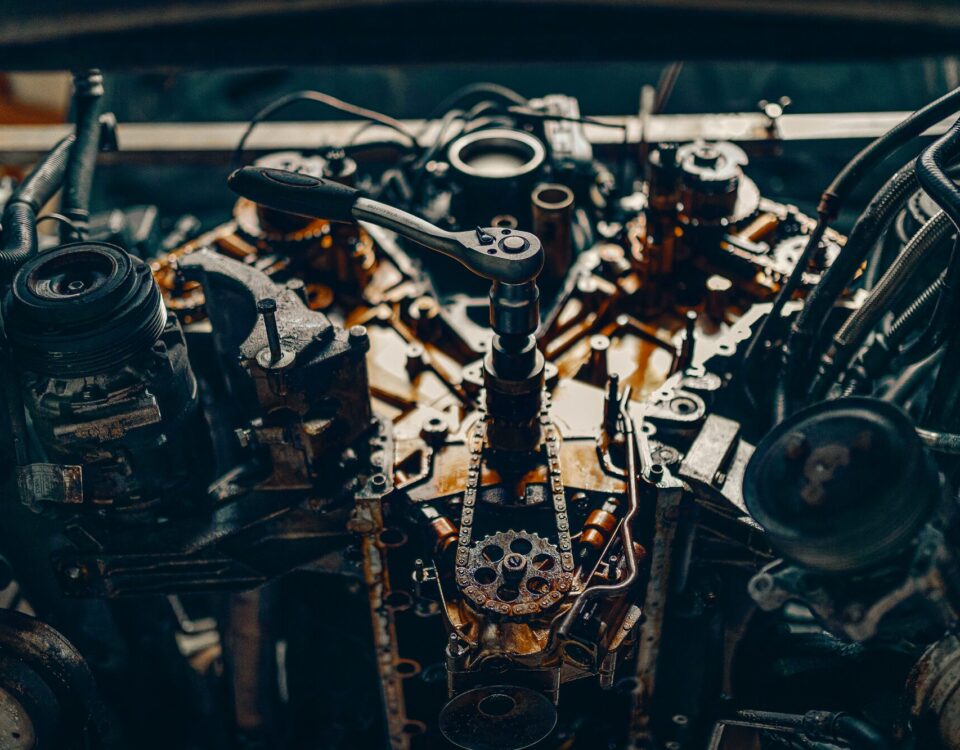
How to Find a Reliable Mini Cooper Repair Shop in Your Area
February 1, 2024
Mercedes Mechanic vs General Mechanic: What’s the Difference?
April 4, 2024Just like a well-tuned orchestra needs a skilled conductor, your BMW requires a skilled mechanic to keep it in top shape. It’s important to maintain a clear line of communication with your mechanic to ensure that your car receives the best care possible.
As the owner, you’re the first line of defense when it comes to identifying any issues with your car. Even the smallest detail could make a significant difference in diagnosis. But how do you convey these details effectively without getting lost in technical jargon? How can you build a relationship of trust with your mechanic?
Let’s explore some practical tips and tricks to help you navigate these critical conversations with your BMW mechanic with ease and confidence.
Describing Issues Clearly and Precisely
In addressing your BMW’s issues, it’s crucial to describe specific symptoms, sounds and smells in a clear and precise manner. Whether you own a new or used model, effective communication with your skilled technician can prevent unnecessary repairs and costs.
Use specific terms like bottoming, bucking, knocking, and sluggish to clearly explain your car’s issues. These tips for talking with your mechanic can lead to a more accurate diagnosis.
You should also consider taking the mechanic on a test drive to demonstrate the problems firsthand. Be prepared to explain when these problems occur and any recent repairs or maintenance.
This information will provide a comprehensive picture of your BMW’s condition and help your mechanic understand its symptoms better.
Avoiding Technical Jargon
Navigating the complex language of auto repair can feel daunting, so it’s essential to use simple, everyday language when describing issues with your BMW. Avoid getting wrapped up in technical jargon. Instead, focus on the symptoms you’ve noticed – specific sounds, sensations, or performance changes. It’s necessary to know the industry tech language. Just try to be specific and use the language that you know.
Don’t try to suggest specific repairs; just state what you’ve observed. If your mechanic uses terms that are unfamiliar to you, don’t hesitate to ask for clarification. This ensures you’re both on the same page about your car’s condition and needed repairs.
The best knowledge a mechanic can receive is the symptom and the condition to which it occurs, such as how long after starting the vehicle did the symptom start? Did the issue occur during acceleration or during braking? This helps the technician duplicate your symptom and diagnose the issue accurately.
Additionally, always request estimates before any work begins. This proactive approach can lead to a smoother repair process, helping you maintain your BMW’s top-notch performance.
Following Up Regularly
Staying on top of your BMW’s repair process involves regularly following up with your mechanic for updates. This proactive approach keeps you informed about the progress of repairs and any potential delays. If your service consultant advises you that parts are several days out, then no need to keep checking in until parts arrive and vehicle is back in the repair que.
Don’t hesitate to ask for estimated completion timelines. It’s also crucial to stay engaged in the process by discussing any additional findings with your mechanic. Confirm the agreed-upon repairs, and if timelines change, request updates.
Clarify pickup and drop-off arrangements to ensure smooth logistics. Remember, maintaining open communication lines with your mechanic isn’t just about the current repair; it’s also about proactively addressing future issues.
Asking Relevant Questions
To ensure your BMW’s issues are accurately addressed, it’s crucial that you ask your mechanic relevant and detailed questions about the problem. Keep in mind that you must provide them with all necessary information, like when the problem occurs and any recent maintenance or repairs.
Don’t hesitate to ask for clarification on unfamiliar terms. Understanding the urgency of any recommended fixes and exploring alternatives, if available, is also key. Typically, independent repair facilities are for more likely to offer repair options than a dealership.
Always request a breakdown of costs and inquire about warranties for parts. By asking these detailed questions, you’ll not only become more informed about your car’s condition but also foster a transparent, efficient relationship with your mechanic.
Requesting Detailed Repair Estimates
After asking all your relevant questions, it’s equally important to request a detailed estimate for the necessary repairs on your BMW. This should include a breakdown of the costs for each part and labor.
It’s also beneficial to ask about the timeline for completion and any potential delays. Finally, confirm the agreed-upon repairs and payment methods and ask for a detailed invoice. Let the facility know to call you if additional costs accrue beyond whatever amount you are comfortable with to avoid surprises. It can be as low as a few dollars or as much as several thousand dollars. It is your money, so you need to be made aware of unexpected price increases before they happen.
This proactive approach can help avoid misunderstandings and ensure a smoother repair process.
Building a Trustworthy Relationship
Cultivating a trustworthy relationship with your BMW mechanic hinges on honest, open communication about the issues you’re experiencing with your vehicle. Be transparent and thorough in describing these problems. Instead of suggesting specific repairs, focus on clearly outlining the symptoms. Actively involve yourself in the repair process, inquire about the recommended repairs, and request estimates beforehand. This encourages transparency and avoids confusion.
Confirm agreed-upon repairs, payment methods, and warranties. Always respect the mechanic’s expertise and trust their guidance. Your proactive involvement in self-inspection and maintenance, coupled with effective communication, will lead to a smoother, more efficient repair process. This approach is key to building a reliable, long-term relationship with your mechanic.
Build a Trusting Relationship with Steve’s Imports

Just as building a solid relationship with your mechanic is crucial, choosing a reputable service center like Steve’s Imports is equally important for your BMW’s maintenance and longevity. We have been servicing BMWs in Portland for over 45 years, and our experienced team understands the nuances of each model.
Here are three reasons why you should trust Steve’s Imports with your BMW:
- Expertise: Our certified technicians are knowledgeable about the historical and modern developments of BMW, ensuring accurate diagnosis and repair.
- Quality: From timing belt changes to main bearing replacements; we provide detailed care for any BMW model.
- Reputation: With a long-standing history of exceptional service, Steve’s Imports surpasses industry standards, leading to a smoother, more efficient repair experience.
Contact us today for quality customer service.
BMW Repair services we provide:
- Routine Maintenance
- Electrical Diagnosis & Programming
- Cooling System Repairs
- Oil Leaks
- Engine Timing
- Suspension
- Brake Repair
- BMW Engine Repair
- Electrical Repairs
- AC Repair Services
- Timing Chain And VVT Repairs
Visit our About Us page for more information about our auto repair shop.


